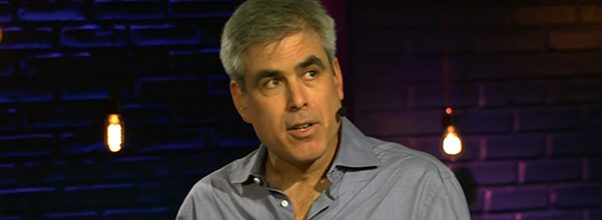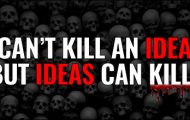The world has gone mad. Almost every day, there’s another story of lunacy erupting at a college campus somewhere in America. We hear about their safe spaces, trigger warnings and bias response teams. We see violent riots and intolerant protesters preventing the exercise of the basic right of freedom of speech at these campuses. We see anarchist thugs in paramilitary attire destroying property and assaulting people with an opposing viewpoint. We even have coddled college students demanding that their exams be cancelled because they didn’t like the recent U.S. election results.
One thing we do know for sure is that our culture is changing at a dizzying pace. As America moves from a Christian nation to a post-Christian nation, those that believe in traditional values are finding themselves not on terra firma but on a pit of quicksand as our values are being replaced with progressive values. We feel helpless and terrified.
As a Christian and a conservative, let me briefly share with you what it feels like to hold and espouse traditional values in today’s culture.
Every day we are subjected to accusations, labels and slurs that are designed to silence us and make us feel horrible. We are told we are bigots because we believe in traditional marriage. We are told are transphobic if we are worried about grown men in girl’s washrooms. We are told we are Islamophobic if we are concerned about the infiltration of Islamic blasphemy laws in America and Canada. We are told we are racist and have white privilege just because happened to be born white. If we question global warming, we are called climate change deniers and that we are anti-science. All of these beliefs were normal, respectable and mainstream just 10 years ago, but not anymore.
What on earth is going on?
Professor Jonathan Haidt has the answers. He is a social psychologist and Professor of Ethical Leadership at New York University’s Stern School of Business. Haidt is also the author of a book called The Righteous Mind: Why Good People Are Divided by Politics and Religion. He is also the founder of the Hetrodox Academy which is an organization that rates American institutions of higher learning based on the criteria of viewpoint diversity. Here is the oath that members of the academy take:
“I believe that university life requires that people with diverse viewpoints and perspectives encounter each other in an environment where they feel free to speak up and challenge each other. I am concerned that many academic fields and universities currently lack sufficient viewpoint diversity—particularly political diversity. I will support viewpoint diversity in my academic field, my university, my department, and my classroom.”
Recently Professor Haidt has become famous because of his use of the discipline of moral psychology to make sense of all of the division, polarization and unbridled change in our society. There are scores of his lectures and talks popping up on YouTube. His main thesis is that all groups hold values that are sacred to them. This sacredness informs every person’s worldview. He uses the current woeful state of the American university system and its abysmal lack of viewpoint diversity to prove his thesis.
Today, many college students are afraid to speak their minds lest they get reported by other students. Professor Haidt himself was reported by a student and they made his life hell for months. Professors now are afraid of students as well. The entire situation is a mess and does not bode well for the institution of higher learning that were predicated on the notion of free debate and unhindered inquiry.
On October 6, 2016 Professor Haidt was part of a Hayek Lecture at Duke University. The lecture lasted a little over an hour. This lecture is full of hard truths for everyone on the political spectrum. The knowledge contained within will blow your mind and will give you hope that many of the problems of our nation can be solved.
I urge everyone on the right, the left and anywhere in the middle to please watch this video if you can spare the time.
As a video game critic and commentator, you may think this subject matter is not pertinent but it most certainly is. All the craziness that has been going on in the video game industry in recent years with social justice warriors and Gamergate is very much related to the polarization that has happened here in America. I also believe that what goes on in academia today — especially the humanities — is the origin point for many of the problems that have seeped into our culture.
For additional insight into our divided nation, here’s a TED Talk interview with Jonathan Haidt that he gave after the election of Donald Trump:
There are undeniable problems in our country and in our world right now. Thanks to brave professors like Jonathan Haidt and Jordan Peterson, we are getting some honest answers about these problems. The only way to fix a problem is to fully understand the problem.
After watching many of Haidt’s lectures I feel that in order address these problems, we all need to take his advice and turn down the volume. We need to find some common ground and then start to really listen to each other with respect. Not tomorrow or next week but right now. We need to stop labelling each other. We need to be more humble, more charitable, more considerate and less selfish. We need to virtue signal less and practice real virtue more. We need to employ tools of reason, rationality to solve problems. Most importantly we need the courage to be honest with ourselves and about what we believe.
One of the hallmarks of Western civilization is that we have inherited a culture that puts a high value on the ability to settle our differences peacefully and civilly. In other words, while we may never fully agree with everyone and it’s okay to agree to disagree and remain amicable. We need to return to that way of thinking lest we devolve into barbarism that holds much of this world in its vice-like grip. Before we can expect others to change, we need to lead by example. Only then can we attempt to help heal this broken world.
-Wolfshead





